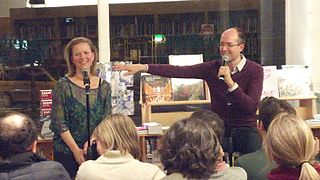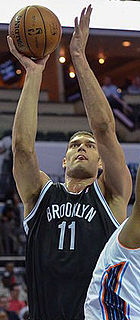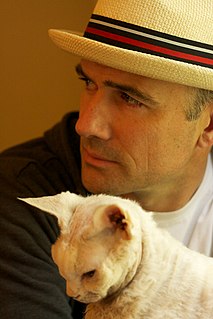A Quote by Amity Gaige
Other than a short article I read in 2008 when the real story broke, I have not followed the Clark Rockefeller case, and 'Schroder' is not a novelization of that story.
Related Quotes
In any case, you read with exasperation or amusement the multiple errors in a story-and then turn the page to national or international affairs, and read with renewed interest as if the rest of the newspaper was somehow more accurate about far-off Palestine than it was about the story you just read. You turn the page, and forget what you know.
The Prodigal Son story is, I think, the greatest short-story ever written. It has such drama in it, such great characters, it's so clear and concise, and it's entertaining in the sense that everyone can relate to it. But you have no doubt what our Lord was trying to communicate in the heart of that story. So the truth was not sacrificed on the altar of entertainment in that case. And it can be.
A major boom in real stock prices in the US after Black Tuesday brought them halfway back to 1929 levels by 1930. This was followed by a second crash, another boom from 1932 to 1937, and a third crash. Speculative bubbles do not end like a short story, novel, or play. There is no final denouement that brings all the strands of a narrative into an impressive final conclusion. In the real world, we never know when the story is over.
A short story is a sprint, a novel is a marathon. Sprinters have seconds to get from here to there and then they are finished. Marathoners have to carefully pace themselves so that they don't run out of energy (or in the case of the novelist-- ideas) because they have so far to run. To mix the metaphor, writing a short story is like having a short intense affair, whereas writing a novel is like a long rich marriage.
At the breakfast table we are footnoting everything that we read. We don't recognise it as such but we encounter an article in the newspaper and then suddenly we recall that a friend had a certain comment on that particular story, a certain bit of news that we saw on the television applies to that and we immediately assemble an idea of a story.
A story is a way to say something that can't be said any other way, and it takes every word in the story to say what the meaning is. You tell a story because a statement would be inadequate. When anybody asks what a story is about, the only proper thing is to tell them to read the story. The meaning of fiction is not abstract meaning but experienced meaning.
The Universe story is the quintessence of reality. We perceive the story. We put it in our language, the birds put it in theirs, and the trees put it in theirs. We can read the story of the Universe in the trees. Everything tells the story of the Universe. The winds tell the story, literally, not just imaginatively. The story has its imprint everywhere, and that is why it is so important to know the story. If you do not know the story, in a sense you do not know yourself; you do not know anything.






































